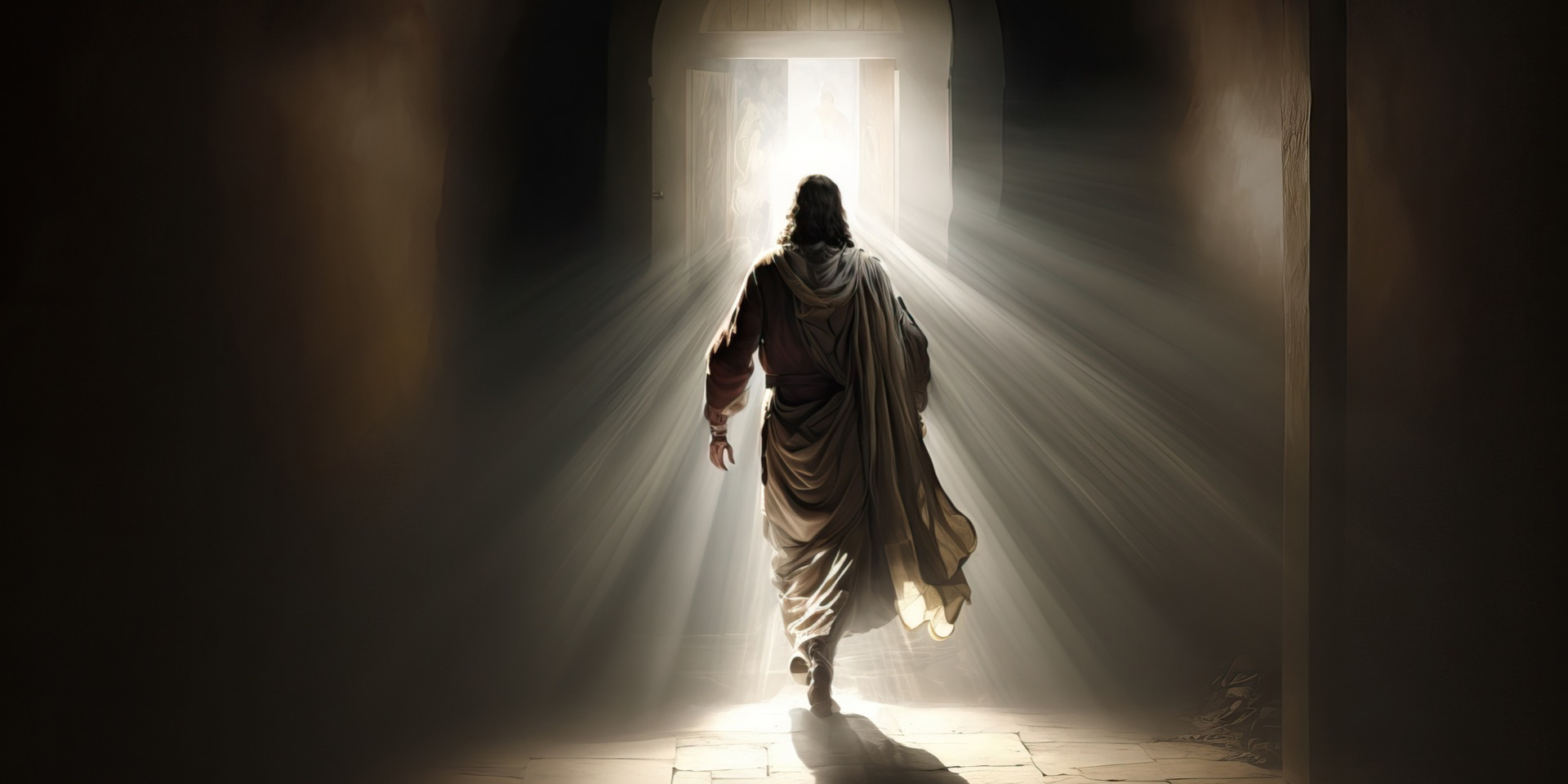Between 2008 and 2021, 379 people died in selfie-related accidents. Made habitual by consumerism and social media, this cult of self-promotion is part of a nefarious cycle of narcissistic stimulation and a powerful indicator of our longing for worth and, by extension, meaning.
The currency of this new habit is popularity: views, likes, followers. Those who succeed become the embodiment of many of our desires. And shocking selfies are a way of competing for a place in the Olympus of those who crave the sweetness of demigod status. In the process, we turn ourselves into commodities, confusing representation with reality, appreciation with goodness, and desire with meaning.
Such approaches have become popular among those who seek to model their lives on idols rather than role models. But can a self-referential horizon produce the revitalisation that manifests itself in lives transformed for the better? Can people be their own source of inner satisfaction and peace, social harmony, and moral rebirth? The answer may be found in the lives of celebrities, who themselves have inner conflicts and insecurities. Try as they might, even they seem unable to resolve their existential anxieties self-referentially.
It is true that when one sees oneself as a demigod, it is much harder to seek or accept wisdom and solutions in the values and advice of the Most High. However, from the perspective of the central figure of Christianity, whose perspective is explored in this article, the only way to regain the harmony for which man longs is to reconnect with the Creator—a return from the “broken cisterns” (dried up cisterns) to the “spring of living waters” (Jeremiah 2:13). Let’s take a closer look at the way Jesus sees the sources of fulfilment and meaning in life.
Horizon for life
Uncertainty and existential turmoil were also pervasive in first-century Palestine, where Jews longed for liberation from Roman occupation. Between hope and disillusionment, they remembered the prophecies of Israel’s restoration. The oppression of the Roman bondage had rekindled the longing for the fulfilment of the prophecies, but the contrast between promise and reality was stark. Many Jews wondered whether God had abandoned or punished His people. This was the audience to whom Jesus had come to talk about the kingdom of God and eternal life. He did so with their context in mind, but at the same time He sought to raise their expectations about the fulfilment of the prophecies of salvation, as well as their expectations about the purpose and meaning of life.
The Sermon on the Mount is emblematic among the discourses of Jesus that recalibrated the horizon of present and future life. The sermon begins with a redefinition of values, revealing the counter-intuitive precursors of the heavenly outcome.
In short, while humans are constantly tempted to be more concerned with temporary things, from Jesus’s perspective, life is more important than its accessories (Matthew 6:19-34). The recovery of the divine principles of a meaningful life—mutual respect, equality and responsibility in rights, obedience to the law, forgiveness, faithful and principled resistance to moral laxity, the adoption of authentic and verified discourse—gives new meaning to the lives of those whom Jesus reaches with His message: to give light to the world and joy to existence (Matthew 5:13-16). By extension, this goal is intended to persuade others to participate in the divine mission of enlightenment and the restoration of the joy of life.
The central theme of the Beatitudes is living in tune with the Spirit: moral satisfaction, living in direct communion with God, inheriting the divine kingdom and belonging to the people of that kingdom all belong to a moral horizon already present in humanity’s relationship with God. Those who respond and follow the proposal of Jesus are already blessed. Those who belong to the Kingdom live in the tribulations of the world, but with a divine orientation—they consider themselves poor only if God is absent from their lives, and those who suffer in expectation of His intervention remain meek when they could be otherwise, they are saddened by corruption and immorality, but they are merciful, pure of heart and peacemakers.[1]
The picture of the meaning of life is illustrated by the very life of Jesus. All four gospel writers affirm that the purpose of His life was to serve and redeem the lost (Matthew 20:28; Mark 10:45; Luke 19:10). His ministry shows the extent of the redemption and restoration of life as He had planned it from the beginning: it removes artificial barriers to beneficence, heals every disease, casts out demons, restores the supremacy of love of God and neighbour, annuls ethnic or religious privilege, supports and uplifts the vulnerable, outcast, and marginalised, morally empowers those who have been abandoned or neglected by political/administrative and religious systems—in short, it inaugurates the Kingdom of God.
Jesus gave himself to people in everything He did, and not only through His death.
The life of Jesus can be our life
With sincerity and the best of intentions, we may find ourselves in the whirlwind of life wondering like John the Baptist whether Jesus and His Gospel are authentic, especially when His interventions in our lives do not meet our expectations. The response of Jesus to John’s question is also instructive for us today. Jesus did not respond directly to his weakness and doubt, but described the actions of His life (Luke 7:18-23).
It is no coincidence that Paul understands that the solution to our doubts does not come from irrefutable answers to our questions, but from imitating the way Jesus thought about ministry. Our life can be put in order if it is lived according to the same principles that motivated Christ, summed up in His self-denial to be of use to His fellow human beings. A disciple of Christ is recognised by the fact that he or she does not live according to the spirit of the times (zeitgeist), but by virtue of the resurrection of Christ (He died so that we would no longer live for ourselves). The commitment of our lives to the life of the crucified and risen Christ defines our orientation, clarifies our destination and purpose in life as well as the way to reach them (Romans 12:1-2; Galatians 2:20; Philippians 3:10).
The resurrection of vision
Perception is often subservient to the conditions in which we live, and perception distorts our conclusions and our horizons. That is why the disciple of Christ has Him at the centre of his or her horizon, because He is the author of our faith, and through Him our spiritual being is built up and our life is increased in quality and influence (Hebrews 12:2).
God’s love changes our perception. Sin has fatally altered our moral sensibility, but the acceptance of Christ’s sacrifice allows the divine Spirit to intervene in what is called the “rebirth,” which by divine grace restores our spiritual dimension to the standards of the Kingdom of God.
God’s radical love broadens our horizons. Then, with a new dimension of existence, the spiritual one, our profile enriches its nature, and thus we can speak of a new purpose, because we have a new horizon. But this purpose does not come from us. As disciples and beneficiaries of divine love, we only reflect it. But this reflection is not automatic. It involves our spirit and is the exercise of our freedom. Spiritual reflection of the divine character is therefore achieved by conscious choice.
Reflection of the Divine
Why does God ask us to reflect Him? Why is this necessary? Because our perception has been narrowed by sin and we have lost sight of the relational dimension of our existence.
Reflecting the Divine is, in fact, recovering the divine image in which humans were created. Through the fall into sin, this likeness to God deteriorated, and instead of showing care, love, and concern for their fellow human beings and for creation, through separation from God, human beings were left alone with their horizons alienated from themselves, their neighbours, and God. This alienating darkness has the effect of hypersensitising us, creating fear, shame, and self-centredness.
When we find God and regain our connection with Him, we regain our trust in our fellow human beings by virtue of the trust He has given us. The parable of the ten virgins, the parable of the talents, and the description of the criteria for the final judgement of all people, as found in Matthew 25, imply an applied knowledge of God’s will that authenticates the claims of faith.
When we know Jesus authentically, our lives are transformed into a blessing to our fellow human beings in every way, and God, who inspires and watches over this endeavour, catalyses our efforts. The end result is that we come to put others before ourselves as others come to be Christ-like to us.
Ambassadors of the Gospel
This realises our purpose in life according to Christ’s vision. The following examples, which I have discussed on other occasions, seem more than eloquent.
William Carey (1761-1834), the British-born father of modern missions was originally trained as a shoemaker, but went to India after being drawn to the cause of Christian mission. There he translated many Indian writings into English, produced several dictionaries and laid the foundations for prose in Bengali and Marathi. In addition to translating the Bible in its entirety into six languages and parts of it into 29 other languages of the Indian subcontinent, he was instrumental in abolishing the sati system, whereby a widow was burnt with the body of her dead husband. His most famous saying is “Expect great things from God. So, attempt great things for God!”
Gladys Aylward (1902-1970) was a British missionary to China. Initially thought unfit for anything other than practical service in her local church canteen, she made her own way to China and became an apprentice to missionary Jeannie Lawson. During her service there, she gained the trust of the authorities and was appointed inspector in charge of abolishing the practice of foot-binding. She devoted her life to orphans in China and Taiwan. She once wrote to her parents about the conditions in which she served: “Life is pitiful, death so familiar, suffering and pain so common, yet I would not be anywhere else. Do not wish me out of this or in any way seek to get me out, for I will not be got out while this trial is on. These are my people, God has given them to me, and I will live or die with them for Him and His glory.”
Shahbaz Bhatti (1968-2011), Pakistani Minister for Minorities, was a Christian martyr. Before his assassination he said: “I believe in Jesus Christ who has given his life for us, and I am ready to die for a cause. I’m living my life for my community…and I will die to defend their rights.”
Andrew Van der Bijl (1928-2022), a Dutch missionary, was the son of a blacksmith. Born into a large family with disabled parents, he had a difficult childhood and did not get to finish high school. He had a passion for adventure and volunteered for the army. He was wounded in battle and treated by Franciscan nuns. He was given a Bible and after reading it he was converted. Returning home, he developed a fervent missionary spirit and began to sympathise with Christians in Communist bloc countries, taking Bibles to them. He founded Open Doors, an organisation that provides relief, community development, advice and advocacy for Christians around the world. Today, Open Doors works in 60 countries and distributes 300,000 Bibles a year. One of his famous quotes is: “The Bible is full of ordinary people who went to impossible places and did wondrous things simply because they decided to obey God.”
The purpose of these disciples’ lives became to share the joy of new life in God and to fully support the lives of others in all aspects of life. This is what they lived for, and their lives were so full that new books continue to be written about their lives and impact on the world. Through Jesus, God has awakened us, renewed us, and re-created our spiritual perception to recognise the values and horizons of the divine Spirit—and we can participate with Him in this mission by dedicating ourselves together for the life of the world.
Laurenţiu Nistor believes that the meaning of life is best taught by its Creator, Jesus Christ. When we know and accept His vision of life, we regain the horizon that gives fulfilment and meaning to existence through the rebirth offered by His Spirit.




















